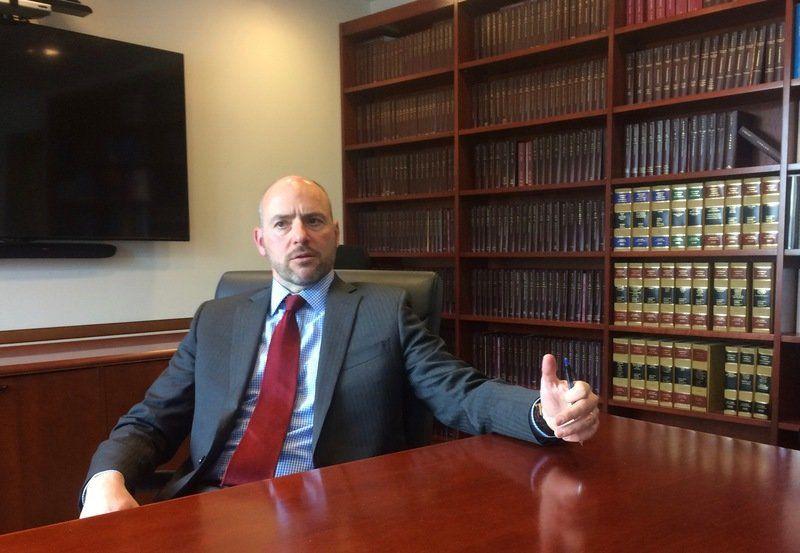
02 Mar U.S. attorney: Lawrence a regional hub for fentanyl | Merrimack Valley
BOSTON — Lawrence has become a pipeline for heroin and fentanyl distribution, according to the top federal law enforcement official working in Massachusetts, who says traffickers are exploiting the city’s location, depressed economy and large immigrant population to peddle the drugs throughout New England.
U.S. Attorney Andrew Lelling says the city’s geographic location, adjacent to two interstate highways, makes it an easy jumping-off point for traffickers using the city as a hub to move large quantities of deadly opiates into major cities in New Hampshire and Maine, where low-level dealers distribute the drugs.
“I don’t think it’s an exaggeration to say that most of the heroin and fentanyl being sold on the streets in Portland, Manchester, Concord and other locations in those states is coming from Lawrence,” Lelling said in an interview. “We’ve know for years that a lot of drug trafficking happens in Lawrence, but it’s become a source for the rest of New England.”
Illegal immigration is part to the problem, he said, noting most of the bulk dealers who’ve been arrested in Lawrence were living in the U.S. illegally or had previously been deported.
“They’re making use of family and acquaintances back in the Dominican Republic to create a highway for trafficking between there and Lawrence,” he said.
Most of the fentanyl coming into the U.S. is being made in factories in China and shipped to Mexico, from where it is eventually smuggled across the southern border.
Mexican drug cartels who plied the marijuana and cocaine trades decades ago are using the same land-based routes to get the drugs into the United States, Lelling said.
“It’s the usual cartels that have been operating for decades, but they’ve switched over to fentanyl,” he said.
In Lawrence, which has a large Dominican community, the drugs are also being shipped via mail directly to the city from the Dominican Republic or China, he said.
When former Attorney General Jeff Sessions visited the region last year, he got on earful from law enforcement officials in New Hampshire and Maine about opioids flowing into their states from Lawrence, which helped shape the Justice Department’s approach locally, Lelling said.
”We had already made Lawrence a priority, but after that it became even more of a priority,” he said.
President Donald Trump has also singled out the city, blasting it in a speech in Manchester last year as a main source of the drugs pouring into New Hampshire.
Fentanyl is a synthetic opioid 50 times more potent than heroin and blamed for a majority of the overdose deaths last year in Massachusetts, Maine and New Hampshire.
Federal, state and local law enforcement have made several high-profile busts in Lawrence over the past two years, many of which have involved fentanyl.
In October, dozens of people were arrested on federal drug, weapons and immigration charges after authorities broke up fentanyl-dealing operations in the city, seizing more than 10 kilos of the deadly synthetic opioid — enough to kill half of the state, officials said.
The raids arrested at least 50 people — many of whom were living in the country illegally.
The busts come more than a year after federal authorities broke up another Lawrence-based fentanyl ring operating as a dial-up service and selling drugs across the region. In that case, more than 30 people – including some who were previously deported – were arrested on federal drug, firearm and immigration charges following a yearlong investigation.
In April, the U.S. attorney’s office in New Hampshire broke up a Lawrence-based drug ring that officials say was overseen by two brothers, Sergio and Raulin Martinez.
That operation led to at least 45 indictments and the seizure of more than 30 kilos of fentanyl.
Despite Lawrence’s designation as a “sanctuary city” limiting its cooperation with immigration agencies, Lelling said city police are “extremely helpful.”
“They have worked with us closely to try to target the right people and tamp down the drug trade,” Lelling said. “We’ve actually had a great relationship.”
Lawrence Mayor Daniel Rivera said he “welcomes the support” from federal law enforcement, saying it is “making our streets safer and ridding our city of crime and drugs.”
Still, Rivera said he’s concerned that the Trump administration is more focused more on locking people up than getting them into treatment.
“We did that in the 1980s and it failed,” he said. “They can arrest as many dealers as they want, but if people are still looking for drugs there’s going to be people selling to them.”
Lelling says the Justice Department understands the need to focus on the prevention and treatment sides of the opioid crisis. His office recently rolled out a new public education campaign called “Reduce the Risk” that includes radio and digital ads aimed at increasing awareness about the dangers of abusing, selling and sharing opioids.
He says operations like those targeting Lawrence are progress, but said it’s still too early to gauge whether the efforts are having an impact on the regional opioid trade.
“We’re hammering away at Lawrence, but it remains to be seen whether that makes significant dent in the overall trafficking out of that city,” Lelling said. “We are seizing more fentanyl than ever, but the stuff is so cheap and plentiful you could hit suppliers all day long and you’ll never get it all. It’s like playing whack-a-mole.”
Christian M. Wade covers the Massachusetts Statehouse for North of Boston Media Group’s newspapers and websites. Email him at cwade@cnhi.com.
[ad_2]
Source link



No Comments